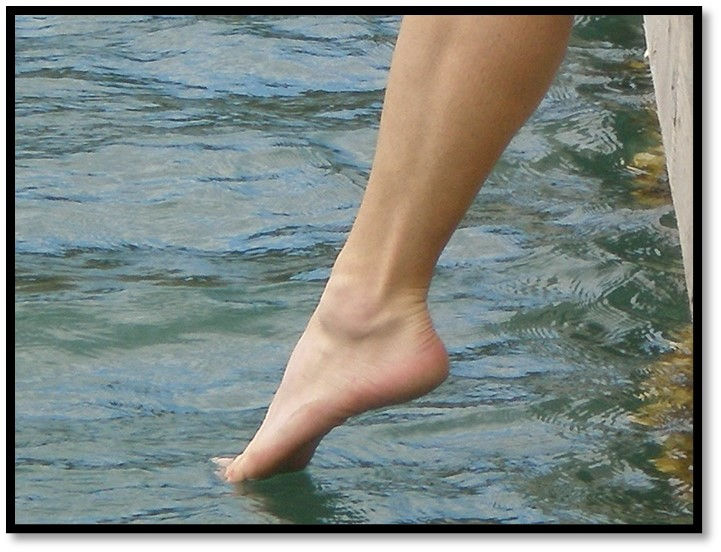Going ... Going ... Went! How to use Correct Past Participles
- Ed Good

- Feb 12, 2024
- 7 min read
Updated: Mar 16

"We have went through [the Mueller Report] line by line." —A U.S. Congressman
Yikes! What’s happening to our language?
Here's a quick, two-minute discussion.________________________________________
Toe-in-the-Water Discussion

Way too many people say or write,
“We have went,”
“They have drank,” or even
“I have saw.”
All are monstrous grammatical mistakes.
Whenever you use the helping verb have, could have, should have, or would have, you MUST connect it to the main verb’s past participle and not its past tense.
Why "must"? Read the deep-dive discussion below.
Most verbs form both their past tense and their past participles with the “-ed” ending. For example, in the past tense, “Yesterday, we decided to see a movie.” And, with the helping verb have, “We have decided to see a movie.” As you can see, the word decided serves as both past tense and past participle.
We call these verbs "regular verbs." They form their past tense and their past participle in the same way.
But 150 verbs are “irregular,” which means they have unique words for their past tense and past participles. The three sentences above mistakenly use not the correct past participle with the helping verb have but the incorrect past tense.
For example, the past tense of the verb to go is went. In the past tense, you would write, “Yesterday, I went to the movie.” The past participle of go, however, is gone. So with the helping verb have, you would write, “I have gone to the movie,” NOT "I have went to the movie."
How do you find the past participle of a verb? Easy. Just Google® “past participle of _____.” See the screenshots below.
So remember, when you use the word have as a helping verb, you must use the past participle of the main verb. If you use the past tense and write, “We have went,” “They have drank,” or “I have saw,” your readers will think less of you.
A lot less. (See the Cheeky Greeting Card below.)
Here's a more detailed analysis.__________________________________________
Deep-Dive Discussion

On July 17, 2019, a U.S. Congressman had this to say on Fox’s The Story:
“We have went through [the Mueller Report] line by line.”
Ouch. Surely an outlier. Oops. Maybe not.
A couple of years earlier, a reporter for a leading U.S. newspaper said:
“The number of border crossings have went way down in the last few months.”
Another ouch. But the pain gets worse.
In 2019, a reporter for the Australian Broadcasting Commission wrote:
“At the gate to the settlement, where warrior guards may have drank, there was no evidence of wine in drinking vessels.”
Yikes!
Oh no. Not a songwriter. Please say it isn't so.
From the lyrics of Out the Door, we hear:
“I could have saw it coming from far and away.”
So, Ed, How do I use Correct Past Participles?
What’s wrong with those four sentences? Did you cringe at any of them? All of them? I hope all four made your teeth itch. They should have read like this:
“We have gone through [the Mueller Report] line by line.”
“The number of border crossings have gone way down in the last few months.”
“At the gate to the settlement, where warrior guards may have drunk, there was no evidence of wine in drinking vessels.”
“I could have seen it coming from far and away.”
The problem arises from the failure to use correct past participles. All four writers use the past tense of the verbs when they should have used the past participles. In my new online course, Write Better Right Now, registrants learn how to use past participles. Briefly, the past participle enables us to create:
the passive voice (Vats of punch were drunk by the partygoers.)
the perfect tenses (We have seen this movie a hundred times.)
a verbal adjective (The broken promises doomed the relationship.)
phrases we call the “-ed phrase” (Enacted in 1964, the Civil Rights Act improved the lives of many citizens.)
Every verb in the English language has a past participle. For most, we just add “-ed” to the base verb. I teach my online students a trick sentence to identify any past participle. Just complete this sentence by inserting the correct verb.
I have BLANK.
So, for example, what’s the past participle of the verb decide? Complete the trick sentence: "I have decided." Yes, it’s decided. We just add "-ed" to get the past participle. We also add "-ed" to get the past tense of the verb decide. "Yesterday, I decided to complete the project." So the past participle of decide is decided. And the past tense of decide is also decided. Because its past-tense and past-participial forms are the same, we call the verb decide a "regular verb." Most verbs in the English language are regular verbs. But … and here comes a gigantic BUT.
Irregular Verbs
Around 150 verbs don’t use the "-ed" ending to form their past tense and past participles. They have special words both for their past-tense and past-participial forms. We call them “irregular verbs.”
In the new online course—Write Better Right Now—we provide a Bonus Handout that lists these 150 verbs. The table in the Handout enables you to determine both the past participle and the past tense of these 150 irregular verbs.
Here is an excerpt from the Handout. It shows the three verbs wreaking havoc at the beginning of this Write Better Blog: drink, go, and see
Excerpt from Bonus Handout
Write Better Right Now
Infinitive or 1st Person Present Tense: Use with "Today, I ..." | Past Tense: Use with "Yesterday, I ..." | Past Participle: Use with "I have ..." or "I could have ..." |
drink | drank | drunk |
go | went | gone |
see | saw | seen |
The first column in the Handout shows the form of the verb acting both as the infinitive and as the present tense for the first-person singular. Just complete the sentence:
Today, I ____.
"Today, I go." Thus, the infinitive and the present tense of go is, well, go.
In the second column, the past tense is revealed by completing this sentence:
Yesterday, I ____.
"Yesterday, I went." Thus, the past tense of go is went.
And in the third column, the past participle is revealed by completing this sentence:
I have _____.
"I have gone." Thus, the past participle of go is gone.
Google to Find the Past Participle of an Irregular Verb
If you don't have access to the Bonus Handout, then to find the correct past participle of an irregular verb, you have to consult a dictionary.
Or better, just Google "past participle of go" or "past participle of drink" or "past participle of see." Here's what I found on these Valentine's Day Google searches for go, drink, and see:
Google "Past Participle of Go"
Google "Past Participle of Drink"
Google "Past Participle of See"
Correct Use of Past Participles
The past participle is dying a slow death. Why? Because many people are just not using it when they should. For example, instead of correctly using the past participle of go (gone), a Congressman and a reporter mistakenly used the past tense (went).
"We have went over the report."
"The number of border crossings have went way down in the last few months."
Instead of correctly using the past participle of drink (drunk), a journalist incorrectly used the past tense (drank) and wrote:
"... where warrior guards may have drank ...."
And a songwriter committed the same flub:
“I could have saw it coming from far and away.”
I honestly do not think these four people would say …
Going … Going … Went!
I do believe they would say …
Going … Going … Gone!
But, alas, we have them on record saying …
"We have went …"
"The number of border crossings have went ..."
"...guards may have drank ..."
"I could have saw ..."
So What's the Advice?
Whenever you use the helping verb have or could have or should have or would have, you MUST join it with the correct past participle (gone, drunk, seen). Why must you do that? Because you're creating the "perfect tense," which requires the helping verb have plus the correct past participle.
Do not join the helping verb have with the past tense of the verb (went, drank, saw). That's the mistake our four writers made (have went, have went, have drank, have saw).
If you do, savvy readers or savvy listeners will … well, they’ll have to scratch their teeth. And then they'll wonder about your ability to write correctly. Not a "Selfie Moment."
So how do you determine the correct past participle? Again, usually you just add "-ed."
But for 150 irregular verbs, you need to check the dictionary or use Google as shown above.
If you register for Write Better Right Now, you'll get the Bonus Handout showing the correct past tenses and past participles for the 150 trouble-making irregular verbs.
What Should a Blogger Do?
I’m not sure I can reach the U.S. Congressman, the U.S. reporter, or the Australian reporter.
I will try. If I can, I'll gladly provide them with complimentary registrations for Write Better Right Now.
The band singing Out the Door performs in Virginia Beach on August 6, 2024. Maybe I’ll buy a ticket, introduce myself during intermission, and have a friendly discussion on matters of moment.
_____________________________________________ Stay Tuned
Visit WriteCorrectly.com again soon. In the next Write Better Blog, I’ll review a ginormous grammatical mistake many people make.
“Your” gonna love it. 😊
Three Cheers for The Cheeky Press
Check out this greeting card for sale on Etsy.





